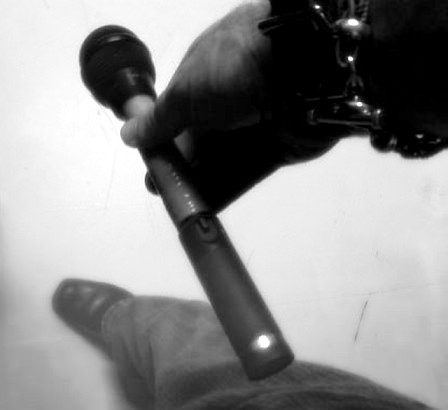Should I Practice Singing with Amplification?
May 01, 2017To amplify or not to Amplify…
First, it is important to clarify that It is perfectly ok to keep training contemporary singing without amplification as singers and teachers have been doing it for hundreds of years. In fact, sometimes it might be a good idea to put the mic down and listen to your voice in an organic way.
This organic option is always available though, so let’s talk about the less conventional option of using amplification in practice routines. Should you practice with amplification or without? An argument for practicing singing with amplification is that it allows you to hear certain harmonics, sound colors, and vowel formations that would be hard to hear otherwise. Another reason, and perhaps the most powerful one, is that as contemporary singers; we are performing with amplification most of the time. For this, it is important that you train with amplification so that you get accustomed to using the “tools of the trade”, so to speak. Things like how to hold the mic, working with mic proximity, and understanding what types of colors come out of the microphone are all of great importance for contemporary singers. All of these elements are unique to us contemporary singers due to the incorporation of amplification as a part of our performance. Nowadays, knowing how to work with amplification is a part of being an artist, a singer, and it is just as important as understanding how to sing unamplified.

Amplification Makes Training Fun!
The most important reason to train with amplification if you can is simply this… It makes vocal training more fun. This helps singers to not become discouraged when practicing linear scales and vocal exercises that can become boring over time. In the video above, Robert Lunte explains how as a young singer (and even now as a coach), just the idea of being able to grab a microphone -with small amount of reverb to it- made a huge difference in his training in terms of motivation. Likewise, many singers might experience that adding amplification to their training routine makes practice more fun and prevents them from training bored and mindlessly.
Something like adding amplification to your training might seem like an unimportant detail, but if it affects in a positive way how you approach your singing practice, it is actually something of great importance. Robert advises students against using vocal effects such as delay or doubling when practicing, as these can distort your perception of what you’re doing with your singing. That being said, Robert also mentions that using a small amount of reverb is perfectly ok for practice.
With regards to the gear you should use for amplification, the answer is quite open ended. In short though, the nicer the better. If you can get a hold of a nice PA system, that would be the best way to prepare yourself for live performances while making your practice routines more fun. However, a nice PA system is not a requirement and you could do the job just as well with a karaoke machine. When you’re looking for one of these systems, look for something that allows you to control the volume of the backing track and your microphone input separately (this shouldn’t be difficult as most karaoke machines have this feature). Karaoke machines are great because they allow you to use a backing track to practice singing after your scales and vocal exercises (plus, you get backing tracks for your singing exercises with the TVS system as well so you could a karaoke machine for this training if you wanted to).

Many of these karaoke machines give you EQ options and simple vocal effect settings. Plus, you could always use headphones during practice with these machines if you wanted to minimize the sound you make during practice so as to not bother those around you. One more option you have for amplification is to simply buy a used guitar amp. With an amp, you could turn off the distortion and add a bit of reverb to set it up for your vocal practice purposes. This is an inexpensive and practical solution, especially if you don’t practice at home or if your practice space isn’t the same every single time.
Getting comfortable using amplification is a necessity for a majority of contemporary singers. For this, it is a good idea to include some type of amplification practice frequently. More importantly though, adding amplification to your singing routine is a great way to change up your practice and make it more fun for yourself. This can help motivate you and, ultimately, allow you to enjoy your vocal journey more than you would otherwise.
WATCH THE FULL VIDEO LESSON ABOVE AND DON’T FORGET TO GET YOUR COPY OF THE FOUR PILLARS OF SINGING!!
Free Vocal Mini-Course
🗝 Discover the one singing skill that will unlock a new singing future for you.
🗝 Never hear "Sorry, it's not what we're looking for." at an audition ever again.
🗝 Learn the simple perspective shift you can make right now that will change everything about how you practice singing.
We hate SPAM. We will never sell your information, for any reason.

